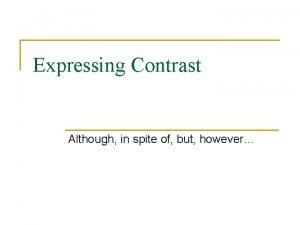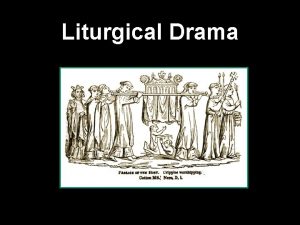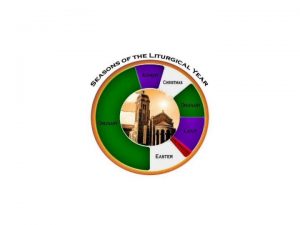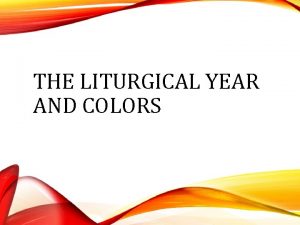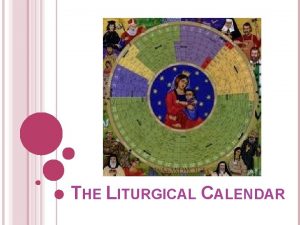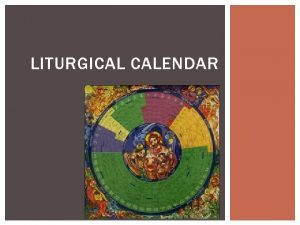Liturgical Drama Liturgical Drama The Catholic Church though





- Slides: 5

Liturgical Drama

Liturgical Drama §The Catholic Church, though it consistently stated that acting was sinful, actually brought about the return of theatre to Europe during the Middle Ages through Liturgical Drama. §Short interludes during the Mass called “tropes” were introduced around 1000 AD. §The need by Church leaders for their congregations to understand brouhgt the interludes into the Mass

Liturgical Drama • In a church service, called The Hours, Bible stories were dramatized. • Music was often incorporated into the dramatizations. Instead of dialogue, the choir would sing and chant • Probably the first liturgical dramatizations were during the Easter service • Priests would take down the cross on Good Friday and then return it to its normal place on Easter Sunday-demonstrating the idea of resurrection • Another popular story was of Mary visiting Christ's tomb to discover His resurrection • The very first written liturgical drama or play is known as the The Wise and Foolish Virgins, half in French and half in Latin.

Liturgical Plays • One early play of the Annunciation took place in the cathedral of Padua • Narration from the Gospel was sung in Latin by a choir of deacons • Young boys acted the parts of the Virgin Mary and the Angel Gabriel • In this Liturgical Drama, they used live doves that were dropped through a hole in the roof of the cathedral!

Liturgical Plays The dramas became so popular that the Church moved them outside to the church yard and extended the length Originally using only the Latin liturgy, this slowly changed to include dialogue in French and then finally in English Even though by the end of the 14 th Century, the Church no longer controlled the plays, they still retained the right of censorship
